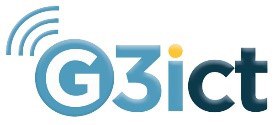Having Trouble Finding Your Way Back Home? Download Meridian App
Posted on July 15, 2013
GPS app builder Meridian can be a lifeline for users who are blind or cognitively impaired, helping users find their way to the mall, restaurant or back home.
I am a creature of habit. New and unknown environments have the tendency to make me a little nervous. I am much better with it than I used to be but I am still uncomfortable with the idea of not knowing the layout of any environment that I travel to. No matter how close to home. This anxiety is a result of my traumatic brain injury: I have extremely poor visual recall; in other words I have difficulty recognizing things that I have seen before.
My family moved into a newly built house in a brand new neighborhood when I was 15 years old, a year after my brain injury. I liked to walk around the neighborhood to explore, and hopefully make new friends. I labeled this activity “friend-hunting,” when my father would ask where I was going. Each and every time I left my street I would get lost for about an hour trying to find my way back home. This went on over the course of an entire year. I could not recognize and remember the street names or houses I passed. I would have panic attacks and get extremely upset.
It is years later now. I have graduated from college and am the CEO of my company. However, this problem still persists to some degree. That's why, I am excited to discover the indoor GPS app builder Meridian. It is a godsend for me and others with disabilities.

This technology is of particular use to shopping malls, hotels, hospitals, subways, airports, museums, and theme parks to say the least. It can be a lifeline for users who are blind or cognitively impaired. It is a practical solution for everyone while serving as an independent living assistant to many users with disabilities.
WiFiSLAM and mobile software company Meridian have harnessed this inclusive technology to further simplify life for smartphone users. Meridian pioneered the first content management system (CMS) for locations. Location-based businesses develop applications through the CMS to connect customers with turn-by-turn directions, promotions and other location-based services.
The practical usage of this technology is limitless: Think of product search and location-based offers; conference room booking for corporate campuses; staff directories for hospitals, and more.
Powell's Bookstore in Portland, Oregon was the first to harness the Meridian app. The service was welcomed as a wonderful guide to help navigate the City of Books. Customers just enter book titles of their interest and instantly receive turn-by-turn directions through the store's color-coded rooms. Plus directions to facilities and features, information on in-store events, and other updates along with it.
The Portland Timbers, a Major League Soccer team, launched the Meridian mobile app in 2011 to provide fans and supporters turn-by-turn directions and other location-based services throughout JELD-WEN Field. The services allow Timbers fans to use their Smartphones to navigate the stadium with turn-by-turn directions between entrances, their seat section, concessions, or restrooms. The app also provides assistance with buying tickets, merchandise and other E-commerce options.
Thanks to Meridian, not only does your Smartphone transform into a tour guide, but you can also use it as a personal assistant to fetch concessions, public transportation information and directions. Meridian displays maps of the stadium and surrounding areas. Users can access game / sports information and players data.
At present, there is no talk about providing “access” to users with disabilities, or using the app as a reasonable accommodation. The app accommodates everybody. It includes the disability community, along with everyone else in the environment that it is customized to enhance. The features allow users with disabilities to experience more of the environment that they are in as well as the amenities provided in it. Alterations or reasonable accommodations are not needed and functional limitations become immaterial.





























